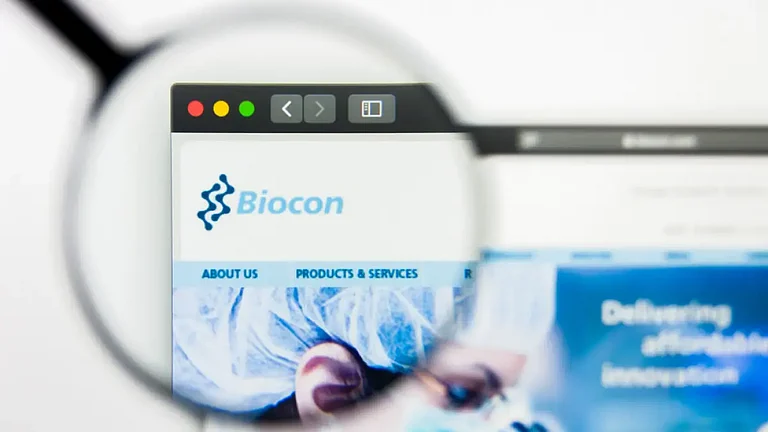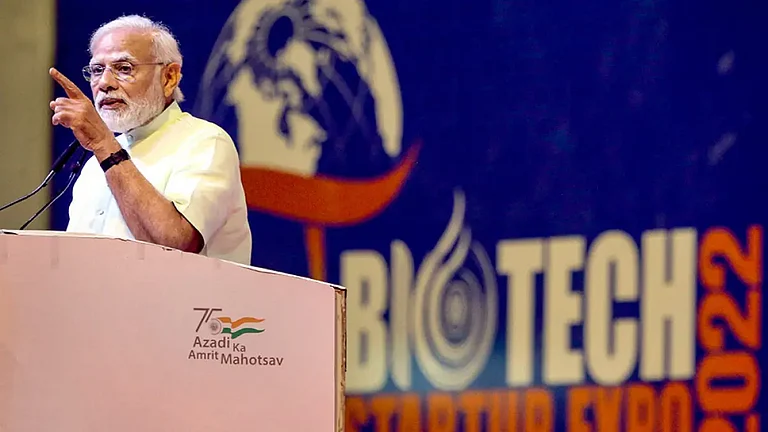Biotechnology is emerging as one of the most transformative fields of our time, offering solutions to critical challenges in health, agriculture and sustainability. For India, the journey toward technology sovereignty in this sector represents not only a vision for self-reliance but also an opportunity to establish itself as a global biotech powerhouse.
Economic and Strategic Imperatives
India's pursuit of technology autonomy in biotechnology is driven by both economic and strategic imperatives. Achieving biotech sovereignty will reduce dependency on foreign nations for critical products and technologies, ensuring uninterrupted access to life-saving medicines, sustainable agricultural solutions and advanced industrial applications. This self-reliance is essential for resilience and for safeguarding India’s strategic interests in an increasingly competitive global landscape.
A Boost to Growth
Biotechnology sits at the intersection of health care, agriculture and industrial innovation, offering transformative potential across multiple sectors. Indigenous advancements can enhance crop productivity, mitigate the impacts of climate change and drive the development of precision medicines tailored to India’s diverse population.
Economically, technology independence enhances India's competitiveness. A strong biotechnology sector can significantly contribute to gross domestic product (GDP), generate high-value employment opportunities and position India as a leader in the global biosciences arena.
In 2023, India’s bioeconomy reached $151bn, accounting for 4.25% of the nation’s GDP. Projections estimate this will grow to $300bn by 2030 and $500bn by 2047. Emerging fields such as bio-based chemicals, smart proteins, precision biotherapeutics, climate-resilient agriculture, carbon-capture technologies and advanced marine and space research are poised to catalyse growth across industries.
"India is uniquely positioned to achieve biotech sovereignty. It produces over 60% of the world’s vaccines and more than 20% of generic medicines"
Leveraging Comparative Advantage
India is uniquely positioned to achieve biotech sovereignty. It already plays a pivotal role in the global pharmaceutical supply chain, producing over 60% of the world’s vaccines and more than 20% of generic medicines. With this strong foundation, India can scale its operations in high-value areas such as biologics, genomics and precision medicine.
Tapping the Talent
India’s vast pool of science, technology, engineering and mathematics (STEM) graduates and its thriving start-up ecosystem provide a strong base for innovation. Initiatives like the Vigyan Dhara programme and the BioE3 [biotechnology for economy, environment and employment] policy foster an ecosystem conducive to breakthrough discoveries.
The government’s efforts to integrate biotechnology with sustainability are shaping the sector's future. Additionally, India’s expertise in information technology (IT) is a significant enabler, driving innovations such as artificial intelligence (AI)-based drug discovery, digital therapeutics and real-time diagnostic tools.
Overcoming Challenges
Despite these advantages, India needs to overcome several challenges such as funding gaps, an uneven regulatory landscape, inadequate infrastructure and talent retention in its quest to attain biotech sovereignty.
India, with active government support, has cemented its position as the third-largest start-up ecosystem globally. In 2024 alone, venture capital (VC) investments surpassed $10bn, highlighting a robust appetite for IT-driven ideas.
However, this focus has largely been on sectors with shorter gestation periods, leaving the biotech and life sciences sector relatively underfunded. By broadening their portfolios to include biotech and life-sciences ventures, VCs can catalyse a new wave of innovation. With the right funding and support, India's biotech start-ups, which numbered over 8,500 in 2023, can harness their potential, delivering both significant returns for investors and solutions that transform lives.
Mind the Skill Gap
India produces the largest number of STEM graduates globally, yet a significant skill gap persists that must be addressed. Specialised training programmes and hands-on, industry-relevant experience are crucial to equipping the workforce with the skills required for immediate employability. To retain this talent within the country, it is vital to cultivate an ecosystem that prioritises innovation, encourages career advancement and rewards entrepreneurial risk-taking.
Infrastructure Push
While the Indian government is bolstering biotechnology through initiatives like dedicated biotech parks, incubation centres and research grants to foster research and development (R&D) centres of excellence, we will also need to invest in state-of-the-art research and manufacturing facilities for biologics, and self-reliant supply chains for critical materials, such as active pharmaceutical ingredients, to reduce dependency on imports and ensure resilience against global disruptions.
Emerging Opportunities
India’s quest for biotech sovereignty is as much about self-reliance as it is about leading global innovation. AI can be used to analyse vast datasets to identify potential candidates and predict their efficacy and safety. AI can thus reduce the time and cost of clinical trials, accelerating the availability of life-saving drugs.
Similarly, advances in technologies like clustered regularly interspaced short palindromic repeats (CRISPR) can offer transformative solutions in health care and agriculture. Investments in genomics research, such as the Genome India Project, are paving the way for personalised medicine and tackling genetic disorders. In agriculture, gene editing is being used to create climate-resilient crops, ensuring food security for a growing population.
A Vision for the Future
By 2047, as India celebrates its centenary of independence, it has the potential to emerge as a biotech powerhouse—pioneering drug discovery, revolutionising agriculture with gene-editing technologies and contributing significantly to environmental sustainability goals worldwide.
India can solidify its place as a leader in biotechnology and create a future defined by progress, resilience and global impact.
(The writer is chairperson, Biocon & Biocon Biologics)











